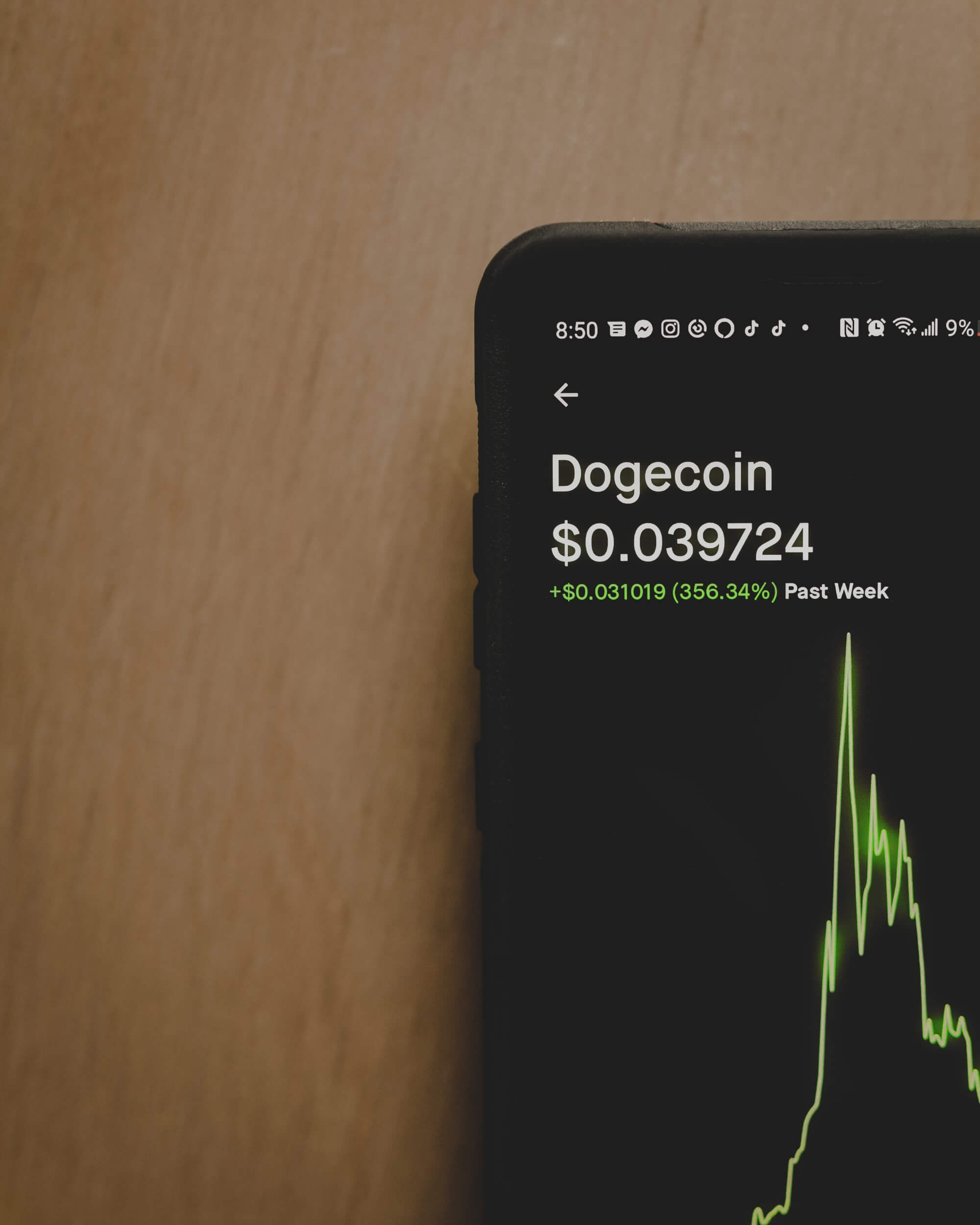This Week In Crypto
This week in Crypto: meme coins, rug pulls, Helium partnering with Dish, and the metaverse.

Wallet With $8000 Investment in SHIB Worth $5B
In the world of shitcoins, dog coins reign supreme. For a long time the meme coin, Doge ($35.5B market cap), has been in the top 10 coins by market cap---above major projects with real traction like Chainlink, Uniswap, Polygon, Algorand, and Vechain. This past week, a new dog coin, Shiba Inu (SHIB), has broken into the top 10 and passed Dogecoin to be the top meme coin. SHIB is now at a $39.5B market cap after gaining 102% in the past 7 days, and 92 million percent in the past year---you read that right.
Amidst this insane run up, the big story around Shiba Inu was about a wallet that bought $8,000 worth of Shiba Inu in August 2020 and held on until now. That $8,000 is currently worth nearly $6 BILLION. In reality, this person would not be able to sell their position for it’s full value. They own just about one sixth of all Shiba Inu tokens in circulation, meaning if they tried to fully liquidate their position they would cause a massive price decrease.
For some context, Shiba Inu coin is worth roughly 50% more than Deutsche Bank.

Metaverse Cryptos Pump Following Facebook Rebrand
Facebook, owner of Instagram, Messenger, WhatsApp, and Oculus, has rebranded its parent company, calling it "Meta." The name is a nod to Facebook's pursuits in the "metaverse," a popular subject in the cryptocurrency world. Facebook's rebranding brought renewed attention to a few popular metaverse crypto projects, led by Decentraland (MANA).
Facebook calls Meta "a place where we’ll play and connect in 3D". The "metaverse" is a term originally coined by Neal Stephenson in his 1992 novel, Snow Crash. Today, the term is used to describe a vast, virtual world in which real people, represented by avatars, can interact socially, play games, and do business together. Crypto enthusiasts believe non-fungible tokens (NFTs) integrate naturally into the metaverse because they allow for anonymous yet provable ownership of digital characters, land, items, and assets. NFT gamers imagine a world in which items and characters from one gaming platform can be used in others. These linked games, social settings, stores, and workplaces make up the modern conception of the metaverse.
Metaverse crypto projects have swelled in response to Facebook's rebrand, including:
- Decentraland (MANA), a virtual world that runs on crypto, increased in market cap roughly 350% since the announcement
- The Sandbox (SAND), a crypto metaverse, rose nearly 150%
- Star Atlas (ATLAS), a space exploration metaverse game, rose roughly 125%
- Axie Infinity (AXS), the most popular crypto game, is up roughly 15%
Facebook’s (NASDAQ: FB) market cap rose about 5% since the announcement, after sliding roughly 10% in the midst of increased pressure from the US government.

Dish Network Partners with Helium
TV and Internet provider Dish network is partnering with crypto project Helium (HNT) to provide wireless coverage for its upcoming 5G network. Helium is the largest of several crypto projects using physical products to mine tokens.
Helium's original "LongFi" network was intended for Internet of Things (IoT) devices, with longer range and lower bandwidth. The LongFi network is aimed at enterprise customers. This new network is intended for consumer devices like phones and TVs. Dish customers who participate in the program will earn HNT tokens.
Dish wireless customers will be able to use special 5G hotspots for their home Internet and television. Currently, the only Helium-compatible 5G hotspot manufacturer is FreedomFi, but several other companies have Helium 5G hotspots in development. Helium predicts up to 40,000 5G hotspots will be in use by the end of 2022.
Helium's token exploded in value this year, prompting hundreds of thousands of crypto enthusiasts to order Helium LongFi network rigs, and Helium claims that over 500,000 LongFi hotspots are on backorder and dozens of manufacturers are awaiting approval to roll out their own LongFi hotspots.
This new partnership with Dish opens the Helium network to consumer use, and it's easy to see how it could become even more popular than mining on the original LongFi network. As the density of LongFi hotspots in an area increases, the Helium mining rewards decrease.
The 5G network has a shorter range, which should encourage adoption by people who already live near other HNT network providers. Additionally, the 5G hotspots will provide TV and internet to the miner's household, which should encourage lock-in.

Squid Game Token Rug Pulls
We’ve talked about the risk of rug pulls here before, basically when the creators of the project or individuals with very large percentages of the tokens sell everything at once and the price collapses. These tokens are usually fake projects, with no real intention of building anything other than a token with some advertising behind it. There are lots of ways these projects can look, like a dog coin that is built off a meme, but one blew up the morning of this newsletter. In the past couple of days, Squid Game Token (SQUID) was getting a lot of press, the token is playing off the popular Netflix show Squid Game. The token has gone from $0.02 to a high of $2,856 this morning. Stories have been written saying that users are unable to sell the token for days, which should be a massive red flag for any investor. As of writing this article, the price is down 99.99% to $0.002, with the developers walking away with a quick $15M.
Looking back at the Squid Games Token homepage, there were plenty of signs that this was a scam before it happened. Twitter user @asparagiii breaks down some of the questionable things on the site saying they have actual images from the show on their site (very doubtful those were licensed), they have random references to Elon Musk’s tweets, and their team doesn’t exist on LinkedIn. In fact, when you do a reverse Google image search for any of their team members, none of them seem to even exist.

Robinhood Crypto Revenue Drops 78%, Launches Burger King Collab
Over the past year, Robinhood (HOOD), the popular stock brokerage app targeting younger investors, increased their net revenue 35% to $365M. That is good news, but their revenue isn’t trending in the right direction. The bad news is that quarter over quarter, their revenue from crypto dropped 78% to $51M. Crypto trading accounted for some 40% of the company’s revenue, the biggest driver of that being Dogecoin. Fees from Dogecoin trading was 62% of the crypto transaction revenue in the second quarter of 2021, and most of those transactions have gone away---Dogecoin just isn’t the memecoin it was last year.
Back at the time of their IPO, Robinhood warned that their revenue was largely coupled to the price and demand for Dogecoin trading. Since this time last year, the news Robinhood really profited off of has been Doge, /r/wallstreetbets, Gamestop, stonks, and stimulus checks. Most of those things are over.
On this news for Robinhood, the stock price dropped to $34.60, under the IPO price for the first time. Trying to get ahead of the news here, Robinhood has partnered with Burger King to give away $2.6M in Dogecoin. Customers that sign up for the Burger King Royal Perks loyalty program have a chance to win Doge, Ethereum, and Bitcoin after making a $5 purchase at Burger King. The odds of winning Dogecoin are much higher than the others.
Robinhood has not listed Shiba Inu coin yet.
